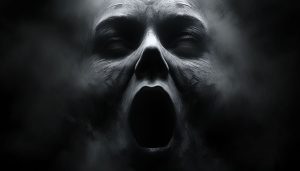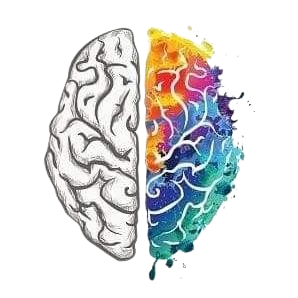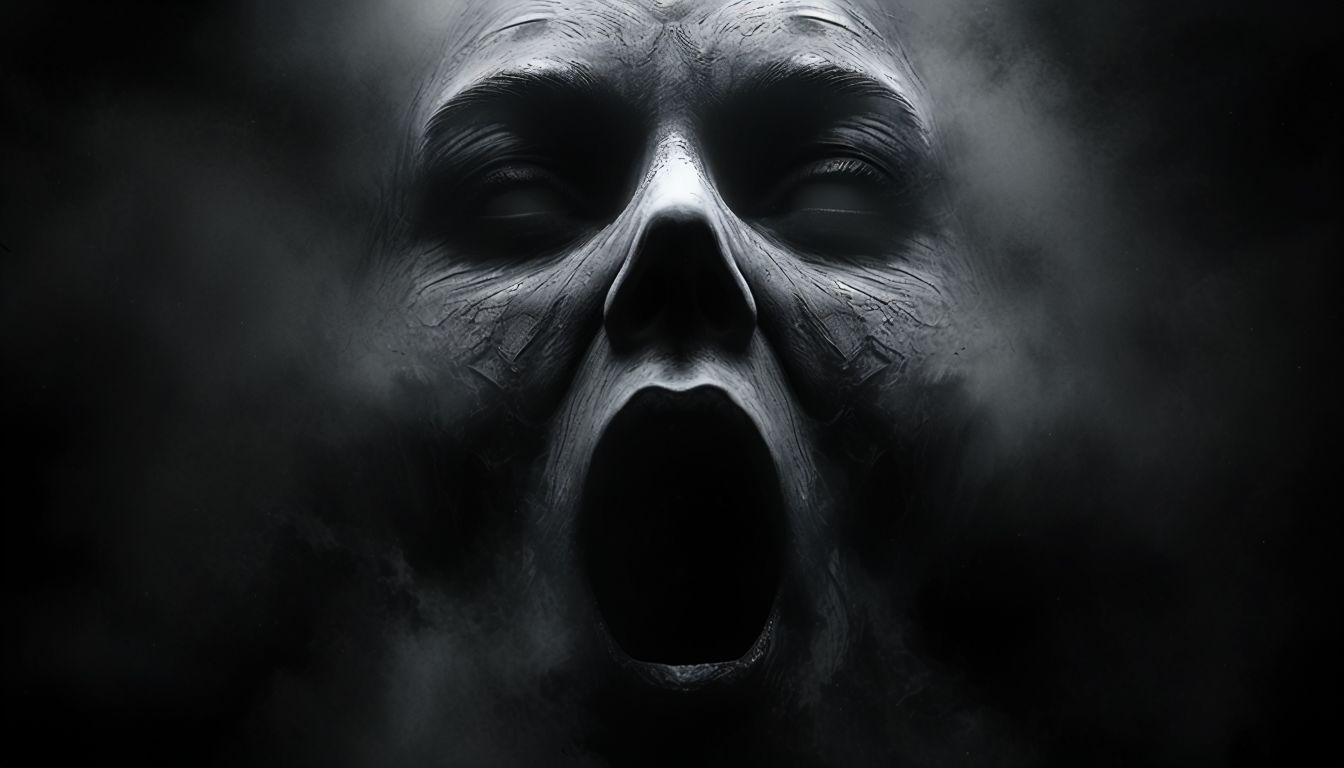Exploring the Paranormal: The Psychology of Ghostly Encounters

Imagine a thin, gossamer veil separating our world from another, unseen realm—a realm filled with the echoes of the past, the spirits of those who have gone before. This is the realm of the paranormal, which has captivated and intrigued humanity for centuries.
The fascination with ghostly encounters is as old as human civilization itself. From ancient tales of spectral apparitions to modern-day ghost-hunting shows, the paranormal has always held a special place in our collective imagination. But what indeed lies behind these mysterious experiences? Are they merely figments of our imagination, or is there something more tangible at work?
The psychology of ghostly encounters is a complex and multifaceted topic, influenced by various factors, including cultural media, personal experiences, and our individual beliefs. By understanding these factors, we can gain a deeper appreciation for the allure of the paranormal and the ways in which it shapes our perception of the world around us.
Understanding the Paranormal
The term “paranormal” is often used to describe phenomena that cannot be explained by conventional scientific understanding. While this definition may seem straightforward, the specific nature of paranormal experiences can vary widely. Ghosts, spirits, and other supernatural entities are just a few examples of the paranormal, each with its own unique characteristics and cultural significance.
Throughout history, different cultures have developed their beliefs and traditions surrounding the paranormal. In many ancient societies, it was common to believe that the spirits of the dead continued to exist in a spiritual realm and could interact with the living. These beliefs often influenced religious practices, burial customs, and social behavior.
The role of belief systems and spirituality in shaping our understanding of the paranormal cannot be overstated. For many people, the idea of ghosts and spirits is closely tied to their religious or spiritual beliefs. These beliefs can provide a framework for understanding and interpreting paranormal experiences, giving them a sense of meaning and purpose.
It is important to note that the paranormal is a highly subjective topic, and what one person may consider evidence of supernatural activity, another may dismiss as coincidence or misinterpretation. As such, it is essential to approach the study of the paranormal with an open mind and a critical eye.
The Psychology of Fear and Anxiety
Fear and anxiety are fundamental human emotions that play a crucial role in our survival. When faced with a perceived threat, our bodies activate the fight-or-flight response. This physiological reaction prepares us to either confront or escape danger. This response involves a surge of adrenaline, an increased heart rate, and heightened alertness.
The human brain, particularly the amygdala, is responsible for processing fear and anxiety. The amygdala is a small, almond-shaped structure located deep within the brain. It receives sensory information and quickly assesses whether a situation is threatening. If the amygdala determines that a threat is present, it triggers the fight-or-flight response.
The fear and anxiety associated with paranormal experiences can be particularly intense. The unknown nature of the supernatural can create a sense of uncertainty and unease, which can trigger the amygdala and activate the fight-or-flight response. This can result in physical symptoms such as a rapid heartbeat, sweating, and difficulty breathing.
Cultural media often exploit our fear of the unknown to create suspense and excitement. Horror movies, ghost stories, and other forms of media frequently depict the paranormal as a source of terror and dread. By tapping into our deepest fears and anxieties, these media can create a powerful emotional response.
The Influence of Cultural Media
Cultural media, such as movies, television shows, and books, can have a profound impact on our beliefs and attitudes. This is particularly true when it comes to the paranormal. By presenting the paranormal in various ways, media can shape our understanding of these mysterious phenomena.
Hollywood and Bollywood movies have played a significant role in popularizing the paranormal. From classic horror films like The Exorcist to modern-day ghost-hunting shows like Ghost Hunters, the media has often depicted the paranormal as a source of fear and fascination. These depictions can influence our perception of the paranormal, making it seem more real and tangible.
Pakistani TV dramas have also contributed to the popularity of paranormal themes. Shows like Alif Allah Aur Insaan and Dil-e-Gumshuda have explored paranormal concepts such as reincarnation and spiritual possession. These dramas often blend supernatural elements with social and cultural commentary, providing a unique perspective on the paranormal.
The influence of cultural media on our beliefs about the paranormal can be both positive and negative. On the one hand, media can help raise awareness of different paranormal phenomena and spark interest in exploring these topics further. On the other hand, media can also perpetuate stereotypes and misconceptions about the paranormal, leading to a distorted view of these mysterious experiences.
It is essential to be aware of cultural media’s influence and approach the paranormal with a critical eye. By understanding the ways in which media can shape our perceptions, we can better evaluate the information we encounter and form our own informed opinions about the paranormal.
Cognitive Biases and Misinterpretations
Cognitive biases are mental shortcuts that our brains use to process information quickly and efficiently. While these shortcuts can be helpful in many situations, they can also lead to errors in judgment. When it comes to the paranormal, cognitive biases can play a significant role in shaping our perceptions and interpretations of experiences.
One common cognitive bias is confirmation bias, which is the tendency to seek out and interpret information in a way that confirms our existing beliefs. If we believe in the paranormal, we may be more likely to notice and remember coincidences or unusual occurrences that seem to support our beliefs. This can make it difficult to objectively evaluate evidence and consider alternative explanations.
Another cognitive bias is the availability heuristic, which is the tendency to judge the likelihood of an event based on how easily examples come to mind. If we have seen a lot of ghost-hunting shows or heard many stories about paranormal experiences, we may be more likely to believe that such experiences are common. This can lead to overestimating the probability of encountering paranormal phenomena.
Misinterpretations can also contribute to our belief in the paranormal. Sometimes, we may misinterpret ordinary events or sensations as evidence of supernatural activity. For example, a creaking floorboard might be mistaken for a ghost, or a strange noise might be attributed to a spirit. These misinterpretations can be reinforced by our existing beliefs and biases.
It is important to be aware of cognitive biases and misinterpretations when evaluating paranormal claims. By understanding how these factors can influence our perceptions, we can become more critical thinkers and better able to distinguish between genuine paranormal experiences and those that can be explained by natural causes.
Personal Experiences and Memories
Personal experiences play a powerful role in shaping our beliefs about the paranormal. Firsthand accounts can be deeply influential, whether it’s a childhood encounter with a mysterious shadow or a recent unsettling experience in an old house.
The human brain is wired to form strong associations between events and emotions. When we experience something unusual or frightening, our brains create a lasting memory often tinged with emotional intensity. This can make it difficult to objectively evaluate the experience and consider alternative explanations.
Childhood memories can be particularly influential when it comes to paranormal beliefs. Many people report having had strange or unsettling experiences as children, which may have left a lasting impression. These experiences can be difficult to recall accurately, and our memories may be influenced by our current beliefs and biases.
For example, a person might recall seeing a ghostly figure as a child, but upon closer examination, they may realize that the figure was simply a shadow or a trick of the light. However, the memory of the experience may persist, reinforcing their belief in the paranormal.
The Paranormal and Mental Health
The relationship between the paranormal and mental health is a complex and multifaceted topic. While many people with paranormal beliefs experience no negative mental health consequences, for some, excessive paranormal beliefs can have a detrimental impact on their well-being.
The Potential Dangers of Excessive Paranormal Beliefs
Excessive paranormal beliefs can lead to a variety of mental health problems, including:
- Anxiety and depression: The fear and uncertainty associated with paranormal beliefs can contribute to feelings of anxiety and depression. Individuals may experience excessive worry, fear of the unknown, and a sense of hopelessness.
- Obsessive-compulsive disorder (OCD): Paranormal beliefs can sometimes manifest as obsessive thoughts and compulsive behaviors. Individuals may become preoccupied with paranormal phenomena and engage in rituals or routines to ward off evil spirits or other supernatural entities.
- Delusions and hallucinations: In some cases, individuals with excessive paranormal beliefs may experience delusions or hallucinations. These can involve false beliefs about the paranormal or the perception of things that are not actually there.
The Importance of Seeking Professional Help
If you are struggling with excessive paranormal beliefs and their negative impact on your mental health, it is important to seek professional help. A therapist or counselor can provide support, guidance, and coping strategies to help you manage your beliefs and improve your overall well-being.
The Role of Religion and Spirituality
Religion and spirituality can play a significant role in shaping our beliefs about the paranormal. For many people, religious or spiritual beliefs provide a framework for understanding and interpreting paranormal experiences. However, it is important to distinguish between healthy religious or spiritual beliefs and excessive paranormal beliefs that may be harmful to mental health.
If you are struggling with excessive paranormal beliefs and their impact on your mental health, it may be helpful to consult with a religious or spiritual leader. They can provide guidance and support and may be able to help you find a healthy balance between your faith and your mental well-being.
The Power of Critical Thinking and Skepticism
While it is important to respect and understand different beliefs about the paranormal, it is also essential to approach these topics with a critical eye. By developing critical thinking skills and a healthy dose of skepticism, we can better evaluate the evidence and avoid falling prey to misinformation and pseudoscience.
Ultimately, the key to maintaining a healthy relationship with the paranormal is to find a balance between openness and skepticism. By understanding the psychology behind ghostly encounters, the influence of cultural media, and the potential impact on mental health, we can approach the paranormal with a more informed and nuanced perspective.
Conclusion
In conclusion, the psychology of ghostly encounters is a captivating and intricate subject that has intrigued humanity for centuries. By delving into the factors that shape our beliefs and experiences, we can uncover a deeper understanding of the allure of the paranormal.
It’s crucial to recognize that the paranormal is inherently subjective; what one person perceives as undeniable evidence of supernatural activity, another might easily dismiss as mere coincidence or misinterpretation. This is why approaching the paranormal with both an open mind and a critical eye is essential.
For those grappling with excessive paranormal beliefs that negatively impact their mental health, seeking professional help is vital. A therapist or counselor can offer the support, guidance, and strategies needed to navigate these beliefs and enhance overall well-being.
Ultimately, as human beings—the pinnacle of creation—our experiences are profoundly shaped by our beliefs, emotions, and perceptions. By understanding the psychology behind ghostly encounters and acknowledging their potential impact on mental health, we empower ourselves to take control of our experiences and lead more prosperous, more fulfilling lives.


